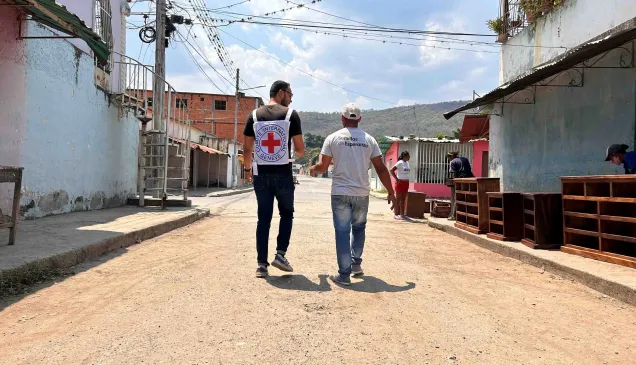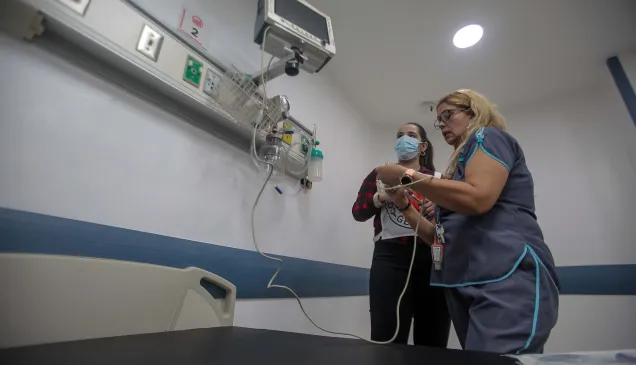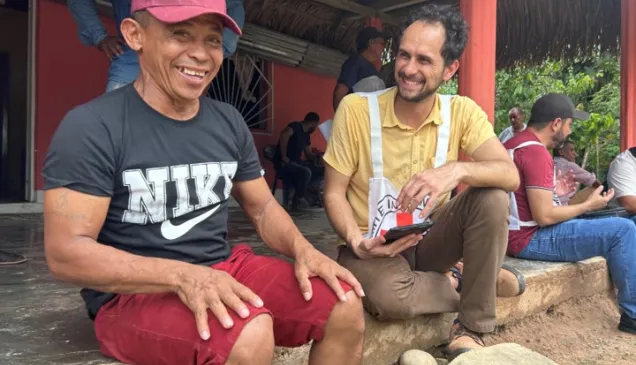Let's beat malaria together! Responding to the most urgent needs of the population
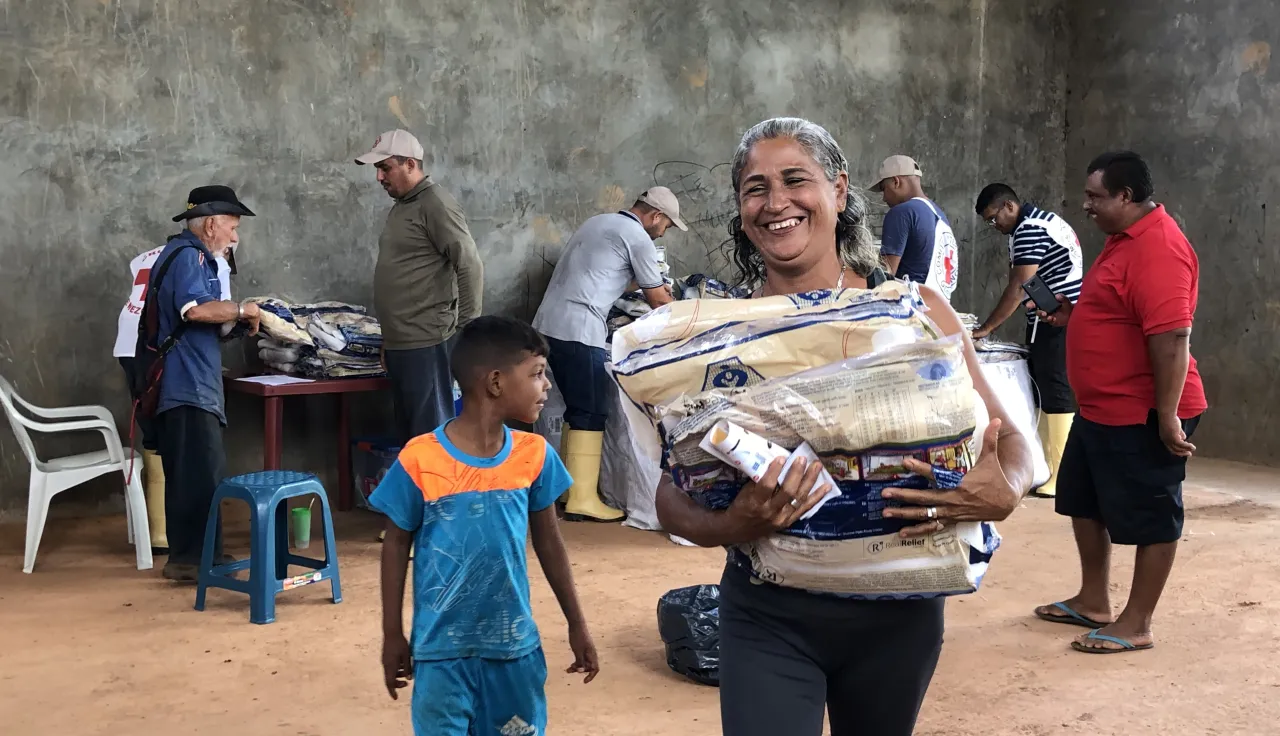
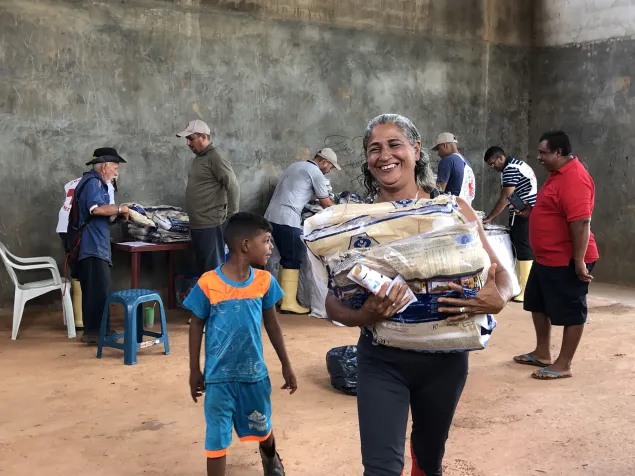
Rosa's children share a hammock, but she has to sleep in a different one, without her husband. "We don't all fit into one," she explained to the staff of the ICRC when they asked her how many mosquito nets she needed for her family. Living in an area with a high density of malaria-transmitting mosquitoes, knowing her family are protected while they rest has been a great relief for Rosa. In El Callao, southern Venezuela, the ICRC have undertaken a number of initiatives to tackle malaria in the Bolívar municipality that has the second highest number of malaria cases. “My husband is a miner, and I also work in mining sometimes. That is why we cannot afford to get sick; if we get malaria, our children will have nothing to eat,” she told us.
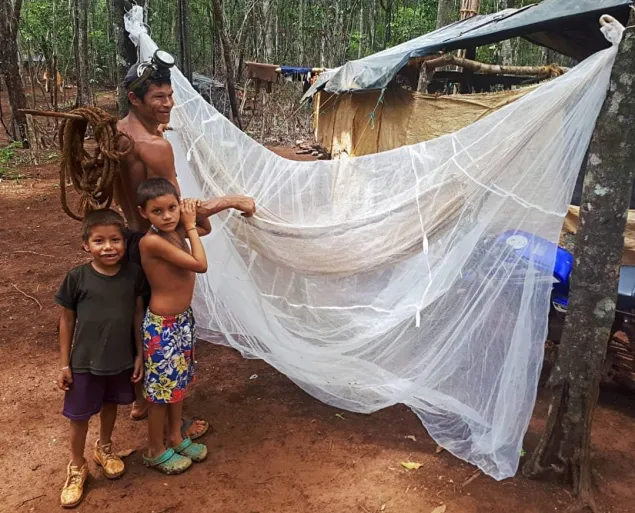
José (fictitious name) has worked as a miner since he was a child, meaning he has lived in settlements far from the city all his life. “Before we had no protection against mosquitoes, and we really needed it because the rain makes it more likely we will get malaria. At night, since there is no light, many other insects bite us, but now we will be able to protect ourselves, which is great.” In areas like the settlement where José and his children live, it is the children who are the most vulnerable to malaria.
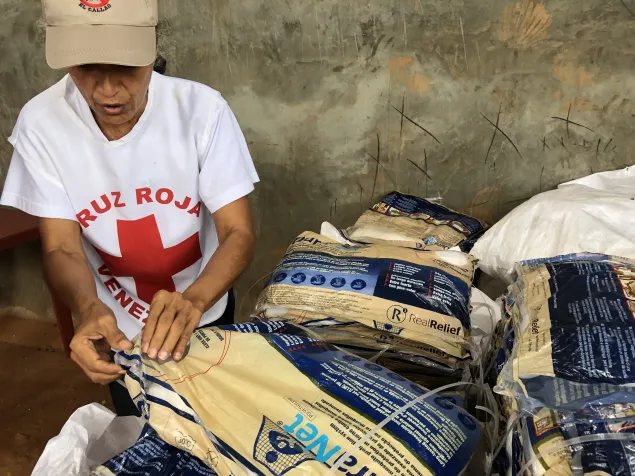
For almost three weeks, a team of twenty volunteers from the Venezuelan Red Cross (VRC) actively coordinated, together with the ICRC, the distribution of 50,000 mosquito nets to the population. Mili, one of VRC’s volunteers, amazed us by how motivated she was every day. "It makes me so happy being able to go to these places to help everyone," she said with a smile. Every day, Mili was the first to arrive at each of the communities receiving mosquito nets, ready to do her job, which was to count the nets and to give to each family the mosquito nets they had requested in advance. With a great deal of patience, she explained to them how to take the nets home and prepare them for proper use.
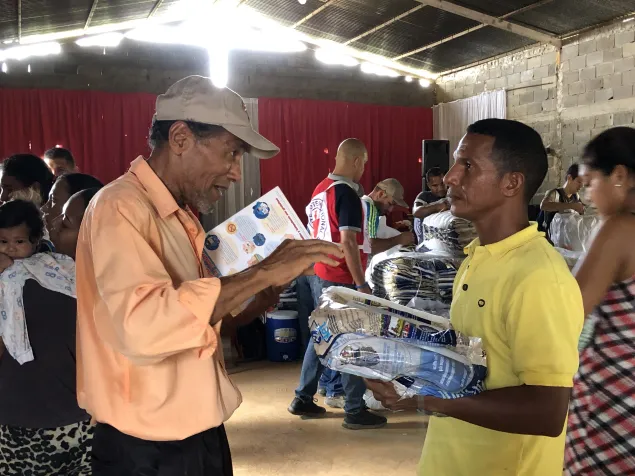
"Do you know what to do with the mosquito net as soon as you get home?" Dr. José, an epidemiology expert from the Bolívar Public Health Institute, asked each person who was given a mosquito net in the town of Nacupay. "To prevent diseases such as malaria, it is important to keep the population informed about how to use the materials to protect themselves, but they also need to know how to act quickly if they get sick," he said as he explained to the miners in the area that they should air out their mosquito nets in the shade for 24 hours before using them, in particular to protect children from the insecticide. In addition to this mass distribution of mosquito nets, the ICRC trained community volunteers to carry out rapid malaria diagnostic tests and offered training courses to microscopists in the area alongside local authorities.
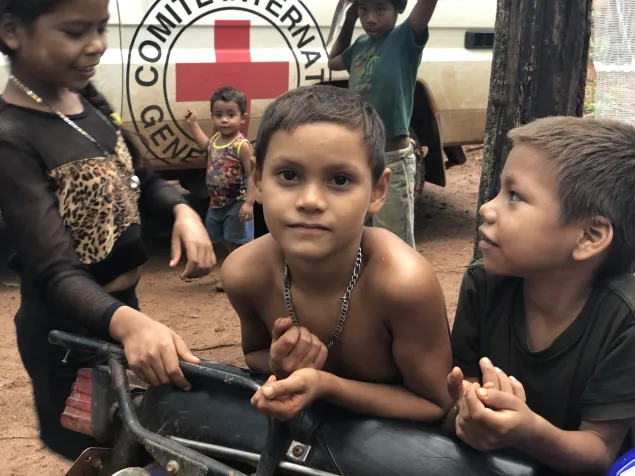
“When one of my cousins got malaria, he had a fever and headache, as if he had the flu. At times, he trembled a lot; he couldn't stop shaking, and we got pretty scared. When they brought him food, he wasn't hungry either,” Darwin recalled, when asked if he knew about malaria and its symptoms. “Since we are very far from town, he was not taken to see a doctor. Now we know, thanks to you, that there is a hospital nearby we can go to if we get malaria, but hopefully we won’t.” The ICRC supports fourteen Diagnostic and Treatment Centres for the population affected by malaria in El Callao, Bolívar.
Venezuela has suffered an increase in the number of people diagnosed with malaria in recent years, a problem that concerns everyone. In high transmission areas, such as the state of Bolívar in the south of the country, the International Red Cross Movement is responding to the problem in cooperation with local health authorities. This response includes, among other measures, distributing 50,000 mosquito nets in the municipality of El Callao; training members of the community in rapid diagnostic tests for malaria and health promotion; experts from different state health entities conducting the first entomological research; and supporting fourteen Diagnostic and Treatment Centres in the area, thanks to which over 20,000 malaria patients have been treated.

